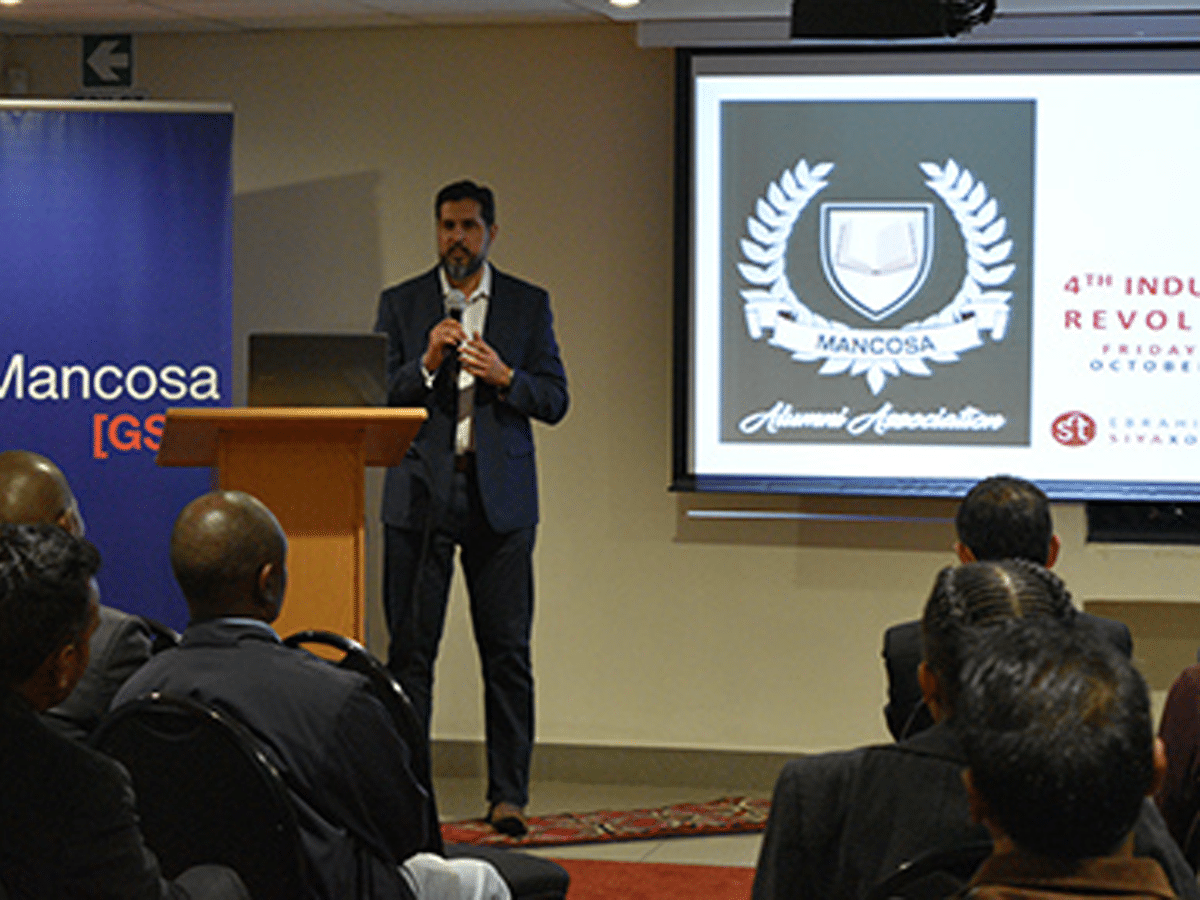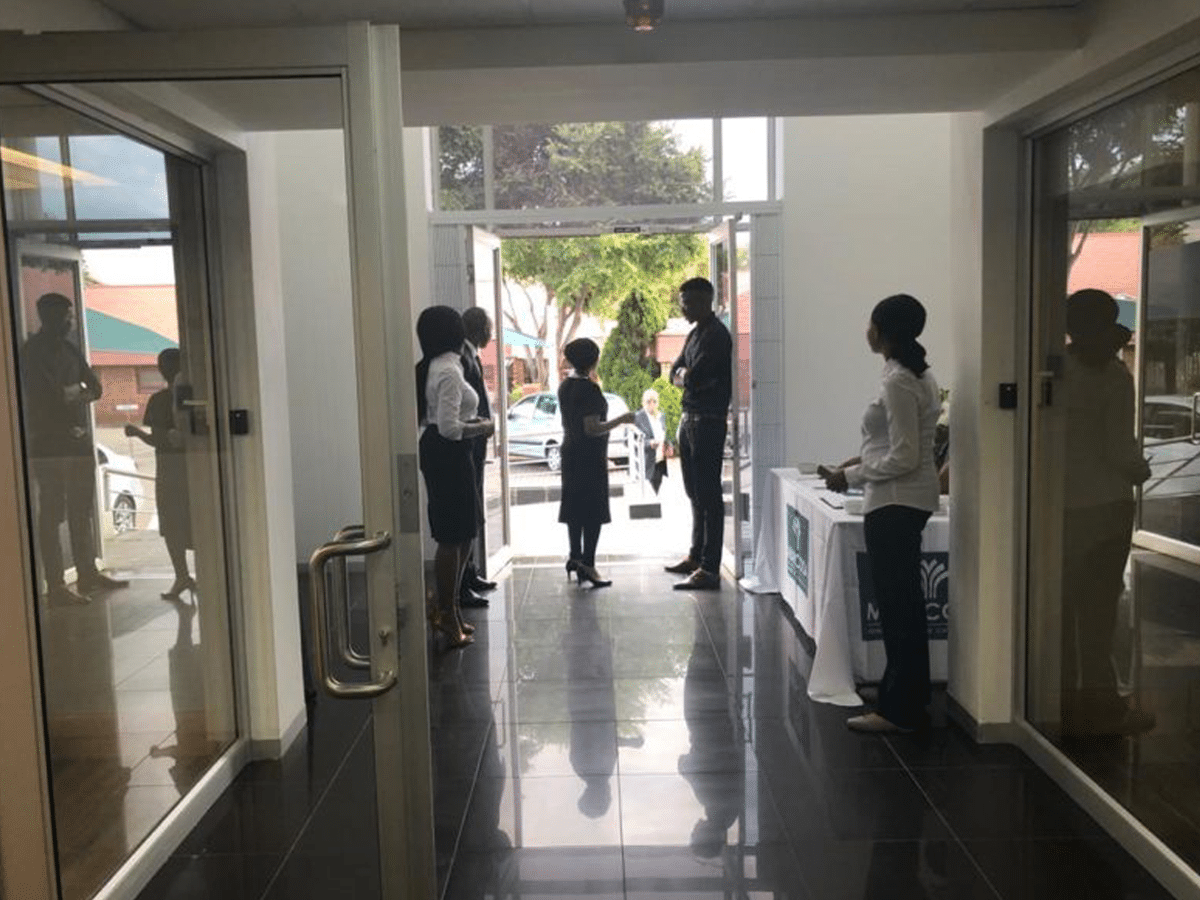Difference Between an MBA and a Master of Commerce
In this article, we’ll look at the importance of pursuing postgraduate education and discuss the main differences between an MBA and an MCom degree so you can make the best decision based on your career objectives and capabilities.

Summary
The business and commerce landscape is constantly changing. With high competition, employers seek workers with extensive knowledge and skills in various business functions. An MBA and a Master Degree in Commerce programmes provide excellent opportunities for students to sharpen their skills, advance their careers, and climb the ladder to senior management positions.
However, how do you choose between these two programmes?
MANCOSA offers Master of Commerce and MBA degrees that equip students with advanced knowledge, skills, and competencies that make them more marketable.
In this article, we’ll look at the importance of pursuing postgraduate education and discuss the main differences between an MBA and an MCom degree so you can make the best decision based on your career objectives and capabilities.
The significance of advanced postgraduate education
Postgraduate education, particularly master’s degrees, holds significant value in today’s competitive work landscape. These degrees are pursued for several reasons, including:
- Offering specialised expertise that helps workers advance in their careers and climb the corporate ladder. In turn, this increases their chances for higher salaries. Studies show that many MBA graduates in South Africa see their salaries more than double within three years of earning their qualification
- Allowing students to build connections and broaden their professional network opens doors that otherwise wouldn’t have been possible.
- Improving students’ research and innovation abilities to broaden their knowledge in several fields (aside from their area of specialisation), including science, technology, and academics.
- Opening doors to international job opportunities and collaborations that allow students to establish roots overseas if they wish.
Some degrees are only offered at a Master’s level, while others have Graduate Certificate or Graduate Diploma levels. This usually depends on the industry and accreditation requirements.
Some common types of master’s degrees include:
- Master of Business Administration
- Master of Commerce
- Master of Computer Science
- Master of Educational Leadership and Management
- Master of Engineering
- Master of Public Administration
- Master of Public Health
What is the difference between an MBA and a MCom degree?
If you’re wondering whether an MBA or a Master of Commerce is better, it’s not so much a question of which degree is best. It’s more about which is best for you, your goals, objectives, and capabilities. Here are comprehensive overviews of both degrees to give you an idea of their focus, core curriculum, outcomes, thesis, learning environments, and costs.
Master of Business Administration (MBA)
- Focus: MBA courses have a strong focus on leadership and management skills. They prepare students for general management roles within organisations and focus on developing their strategic thinking, decision-making, and leadership abilities.
- Core curriculum and coursework: MBA modules usually comprise various business subjects, including finances, marketing, human resources, and operations. Students learn through practical work, team projects, and case studies. They may pursue careers such as general business managers, operations managers, etc.
- Outcomes and career goals: After completing an MBA, students often pursue careers in executive or managerial positions in various business industries. They may also become entrepreneurs since they know all business functions extensively.
- Research, thesis, and dissertations: While many MBA programmes involve case studies and project work, they typically don’t require a thesis. Instead, these programmes focus on practical experience.
- Learning environment: Depending on the specific learning institutions, MBA programmes typically provide a learning environment with a heavy emphasis on practical training and group work.
- Tuition and costs: The exact cost of your MBA will depend on the specific educational company. Typically, the shorter the duration of the programme is, the less it’ll cost. For example, MANCOSA’s MBA programme runs over 18 months, while other institutions may offer longer or shorter programmes.
Master of Commerce (MCom)
- Focus: MCom programmes have a more specific focus on commerce-related subjects, such as accounting, economics, and finances. While they offer a broader understanding of these subjects, they may not cover all business areas like MBAs.
- Core curriculum and coursework: MCom programmes mainly involve accounting and economics. The curriculum is very theory and research-oriented.
- Outcomes and career goals: After completing MCom degrees, graduates usually pursue managerial and senior positions in finance, accounting, or economics. They may pursue jobs such as financial analysts, accounting managers, etc.
- Research, thesis, and dissertations: MCom programmes often require students to complete a thesis or dissertation — which is highly research-focused. This allows students to contribute to academic knowledge in their MCom specialisation.
- Learning environment: MCom programmes are more academic and often emphasise research, theoretical concepts, and critical analysis.
- Tuition and costs: Similar to MBA programmes, the cost of MCom programmes also significantly differ based on the educational institution and duration. MANCOSA’s Master of Commerce programme spans over one year.
Real-world perspectives: career opportunities
MBA and MCom degrees equip students with advanced skills and knowledge that enable them to pursue outstanding careers. Listed below are just some of the advanced career opportunities that MBA and MCom graduates can pursue upon programme completion.
Typical MBA careers
- Entrepreneur
- General Manager
- Head of HR
- Independent Consultant
- Chief Executive Officer
- Chief Operations Officers
Learn more about what you can do with an MBA degree.
- MCom careers
- Academic Researcher
- Accountant
- Banker
- Economist
- Financial Analyst
- Financial Planner
- Statistician
- Independent Tax Consultant
Register for a Master of Commerce with MANCOSA
The decision between an MBA and an MCom shapes your career path. While both degrees offer a wealth of knowledge that’ll set you apart from other employees, the choice between the two ultimately comes down to your career goals and capabilities. Learn more about MANCOSA’s Master Degree in Commerce or the Master of Business Administration to learn which option is best for you.





